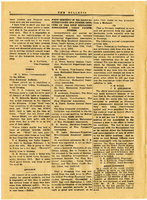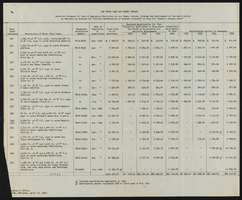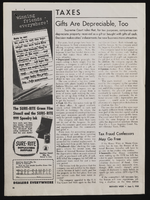Search the Special Collections and Archives Portal
Search Results
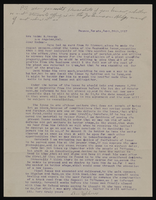
Correspondence, Levi Syphus to Sadie George
Date
Archival Collection
Description
Text
Gary W. Royer Collection on Gaming
Identifier
Abstract
The Gary W. Royer Collection on Gaming (dating from 1950 to 2009, with the bulk of the materials dating from 1970 to 1995) contains research files, legal files, reports, and manuals about gaming written and collected by Gary W. Royer. The collection includes research and regulatory files collected by Royer while he worked at the Nevada Gaming Control Board. These files primarily document the legislation and regulation of gaming in Nevada, but include information on other states in the US and some international locations. Regulatory files include statutes, codes, regulations, revenue reports, Nevada Gaming Control Board and Nevada Gaming Commission meeting minutes, and tribal-state gaming compacts. Also included are research files about casino, racetrack, and sports betting facilities that include data on organizations, monthly revenue reports, occupancy rates, management and operational control manuals, annual reports, policy and procedure manuals, and profile sheets collected for consulting purposes in Royer’s role as President of Casino Control Corporation (CCC), a private gaming consulting firm. Also included are subject and research files, vendor advertisements, catalogs, and reports; gaming industry publications; conference materials; audit guides; and a comprehensive collection of newspaper articles that document the US gaming industry in the second half of the twentieth century.
Archival Collection
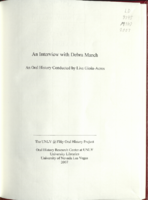
Transcript of interview with Debra March by Lisa Gioia-Acres, February 21, 2007
Date
Archival Collection
Description
Text

Patricia Vazquez interview, November 14, 2018, June 14, 2019: transcript
Date
Archival Collection
Description
Session 1: Interviewed by Marcela Rodriguez-Campo. Barbara Tabach also participates in the questioning. Session 2: Interviewed by Rodrigo Vazquez. Monserrath Hernandez also participates in the questioning. Patricia Vazquez was born and raised in Las Vegas, NV and shares her experiences growing up in the Valley as a Queer Latina. At a young age, she remembers traveling back and forth between Mexico and the U.S. to visit family. When she started school she shares how her home language, Spanish, became her family's "secret language" as she began to learn English. During elementary school Patricia was tracked into the special education program, and remove from the mainstream classroom. She would find her love for learning in books and libraries as she taught herself how to read in English. Despite being tracked into less advanced courses, Patricia would end up taking AP/ Honors courses in high school after forging her favorite teachers signature, which changed her educational trajectory. After coming out to her family, Patricia went nearly a decade distanced from her mother and continued her college education at Arizona State University. There, she would complete a bachelors in painting and a masters in comparative literature. Her work with the Chicano Studies program at ASU helped her develop her Chicana identity and begin her involvement in social activism. In Las Vegas, she worked to fight for marriage equality and LGBTQ rights with the American Civil Liberties Union , and later with the Progressive Leadership Alliance of Nevada. She also conducted several lectures for the Latino Youth Leadership Conference on sexuality, gender, and homophobia for over a decade. She has served as an English Professor at the College of Southern Nevada for the last 20 years and is an avid hiker, traveler, and painter.
Text

Interview with Edward Bonfoy Giller, April 19, 2006
Date
Archival Collection
Description
Text

